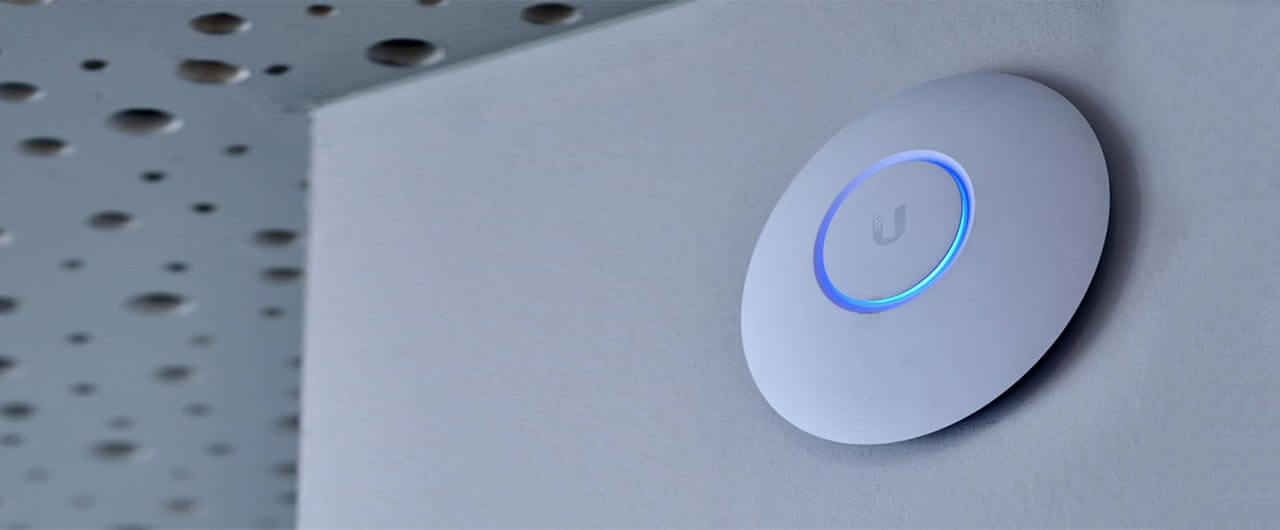The wireless networking technology known as Wi-Fi has become a home and business essential in an almost staggeringly short bracket of time.
This technology entails Internet connectivity being established through a wireless router. When the user connects to this wireless router, it becomes possible for their Wi-Fi compatible devices to interface with the Internet.
As of the first quarter of 2022, 94% of adults polled in the UK stated that they, or someone in their household, used a fixed wireless Internet connection (Wi-Fi) at home. This compared to wireless router penetration of just 34% in the UK, as of the first quarter of 2007 – the year that ushered in the era of the smartphone with Apple’s iPhone.
If you’re wondering what reason we would have for mentioning smartphones, this will become clear with the next statistics we share.
A YouGov survey into wireless connections earlier in 2024 found that among 2,179 adults living in the UK, 89% of respondents with home broadband claimed to have between one and 20 Wi-Fi devices in their homes. These devices encompassed not only smartphones, but also the likes of laptops, games consoles, smart TVs, smart watches, and even security cameras.
Across homes and commercial premises alike, demands on Wi-Fi connections are growing
Nearly any and every Wi-Fi solution might have seemed cutting-edge when this technology first began penetrating the mainstream. However, as of the 2020s, Wi-Fi users’ demands and expectations are constantly evolving.
Indeed, recent online research has found that when it comes to upgrading Wi-Fi, 49% of consumers prioritise improving the Wi-Fi coverage they enjoy throughout their homes.
Some 56% stated that they prioritised quicker Internet speeds for everyday use, while 42% cited trustworthy Wi-Fi performance – even when multiple users are online – as their priority. Meanwhile, about a third (32%) of the survey participants expressed a wish to achieve a seamless connection for all smart devices and home networks without any delay.
So, as you can see from these findings, there is evidence that many of us – even when we are “just” using Wi-Fi at home – have ever-greater expectations of the wireless connections we use. We want the Wi-Fi in our homes to be capable of supporting all manner of digitally based activities – encompassing both work and play – wherever we may be in our property, and whenever we wish to use the Internet. In this article, then, we will take a closer look at the role that Ubiquiti access points can play in optimising the Wi-Fi experiences that everyone in your London, Surrey, or Kent household enjoys. Furthermore, we will answer the question of what makes DTS London the leading local specialist in Ubiquiti Wi-Fi access point installation.
Who makes Ubiquiti access points?
When we refer to “Ubiquiti access points”, we are – of course – referring to the wireless access points (or “WAPs”) that the Ubiquiti brand offers.
Ubiquiti Inc. is an American technology company, formed in the Californian city of San Jose in 2003, but now based in New York City. The business has long been known for its manufacture and provision of wireless data communication and wired products for both homes and enterprises, encompassing the likes of access points, routers, switches, and base stations.
Ubiquiti wireless access points are networking devices that allow wireless devices to connect to a wired network. It is easy to deploy and manage Ubiquiti WAPs, which have seen use in such settings as educational establishments, hospitality venues, and enterprise sites.
Wherever Ubiquiti access points may be installed in your property, you can count on them delivering formidable and consistent performance. Our specialists’ installation of Ubiquiti access points can help ensure the same quality of Wi-Fi connection through every part of your home.
An introduction to wireless access points
Whatever brand or manufacturer to which you might turn for wireless access points for your London, Kent, or Surrey home, these devices can be invaluable for giving you and members of your family the best possible experience when using the Internet.
The purpose of a wireless access point – or WAP – is to enable the connection of wireless devices to a wired network, such as the Internet or a local area network (LAN).
WAPs tend to be used in especially large buildings or offices where a single router isn’t sufficient to ensure consistent coverage and performance. However, as we explained above, greater demands have been placed on Wi-Fi connections in domestic properties over recent years. In accordance with this, there has frequently been a need to achieve the optimal Internet browsing experience throughout every room of a bigger house.
Sure enough, WAPs have a broader transmission range than wireless routers. Whereas a wireless router’s reach might be only around 10 to 12 metres, a wireless access point typically has a transmission range of approximately 100 to 300 metres. So, you can probably see why WAPs can make for much easier coverage of larger areas.
In what circumstances might you seek to have wireless access points installed in your home?
A typical scenario in which a resident of London, Surrey, or Kent may begin researching companies that offer wireless access point installation – such as DTS London – is as follows: they are walking around their property with their smartphone or tablet computer in hand, and they suddenly realise that the quality of their device’s Wi-Fi signal has dropped.
You may have had this kind of experience in your home, or perhaps in another location such as a hotel. In such a setting, it might have become clear that one part of the building offered a somewhat better Wi-Fi signal than another.
Whether you were in your own abode or somewhere else, this issue may have arisen due to you walking into a “dead zone”, where the router wasn’t providing sufficient Wi-Fi coverage. This may have occurred due to the router being too far away for its signal to reach that area of the building. A Wi-Fi signal may also be weak in a certain part of a property because it needs to travel through an obstruction, such as a large solid wall, to get there.
Having Ubiquiti access points placed in any problematic parts of your building, then, can enable you to ensure an even and consistent level of Wi-Fi coverage in every room.
In an era in which the typical London homeowner might have a smart TV at one end of their property, and a laptop and several mobile devices at the other end in a home office where they carry out work tasks, WAPs have arguably never been more urgently needed or relevant than they are now.
You might ask our team at DTS London to place several Ubiquiti access points around your residential property in London, Kent, or Surrey, perhaps to support a comprehensive multi-room audiovisual system.
For further information and to request a free consultation, please fill in and complete our online contact form, or give us a call on 0208 090 7485.
3 factors that make us the premier Ubiquiti Wi-Fi access point installers in London
So, why should you approach our experts in Wi-Fi network design at DTS London to install wireless access points from the Ubiquiti brand at your home?
Here are some of the best reasons:
- Our ability to provide a solution tailored to the client’s needs
There isn’t just one, standard wireless access point that Ubiquiti provides. Quite the opposite – the company’s acclaimed UniFi range encompasses many different WAP models.
This factor, combined with the DTS London team’s in-depth knowledge and experience when it comes to Ubiquiti access points, enables us to select the specific units that will best satisfy the client’s needs, followed by the installation of those units in the right places.
You may, for instance, simply require slightly more Wi-Fi coverage in one or two rooms where the signal may have long been lacking. In this case, we might simply opt to fit a single, basic model, in the knowledge that even Ubiquiti’s “entry-level” access points are high-performing and reliable.
Alternatively, you might have a comparatively sprawling home where there are many more spaces necessitating the installation of wireless access points. If this is the situation when you enquire to us, we can arrange to have multiple WAPs fitted that are highly resilient and able to accommodate a broad range of device connections.
- Our unrivalled knowledge of the Ubiquiti UniFi range
We realise that references to specific brands and products can be confusing, given that you probably don’t spend your days and nights considering the merits of Ubiquiti and UniFi. You simply wish to achieve the best possible Wi-Fi connection across every area of your Surrey, Kent, or London home where you and other members of your household require it.
So, let’s very quickly explain what the UniFi range is. UniFi is a range of networking equipment offered by Ubiquiti, encompassing various models of wireless access points, switches, routers, security cameras, VoIP phones, controller appliances, and access control products.
UniFi products are not at the cheap end of the broader range of home networking equipment available today; however, nor are they intended for enterprise applications. In effect, they constitute a middle ground between those two ends of the spectrum, not being as complicated or as expensive as enterprise products, but still offering impressive features and flexibility.
But of course, as a DTS London client, you don’t strictly need to know all these details. Instead, you can rest easy in the knowledge that we will draw upon all our expertise and experience in the finer aspects of Wi-Fi network design and Ubiquiti UniFi products, to devise and install the all-round solution that best suits your home.
- Our renowned home network report service, which can identify Wi-Fi issues
As we explained earlier, you might contact us about London Ubiquiti access point installation after simply walking around your house one day, and noticing that the quality of the Wi-Fi signal on your smartphone or tablet computer is not quite as strong as desired.
However, in such a situation, it may be easy to presume that the installation of one or two WAPs is “all” that is required. There might be certain other areas of your property, for instance, where the Wi-Fi signal is also intermittent, but you may entirely miss or overlook these.
This helps to explain why you might decide to have a network report survey carried out at your domestic property in London, Surrey, or Kent, courtesy of the DTS team.
This service – available for a small fee, subsequently deductible from any final quotation we provide for Ubiquiti WAP installation – will only require us to spend approximately one or two hours at your property. We will use that time to carry out certain processes such as bandwidth qualification, cold spot testing, and speed testing/ISP package confirmation.
These procedures will enable us to pinpoint any respects in which your existing home Wi-Fi may be failing you, encompassing such potential issues as Wi-Fi coverage black spots, interference, slow roaming, and/or device disconnections.
As a result of gathering all this information, we will be able to determine what steps will need to be taken to resolve the outstanding issues. This will allow us to provide you, our client, with the comprehensive and best-tailored solution that will deliver an excellent Wi-Fi connection for everyone in your property.
Naturally, the final report will also include an estimate for work to be completed. Please click through to the relevant section of our website to find out more about our Wi-Fi network report service, and how you can take advantage of it.
Where should an Ubiquiti access point be installed?
The choice of location for an Ubiquiti access point will be driven by the need to ensure the best possible Wi-Fi coverage. This is likely to mean the Ubiquiti WAP being installed in a central location with minimal obstructions.
The following factors may influence where the installer decides to locate a wireless access point:
- The need to keep the WAP away from physical obstructions. This will probably mean ensuring a certain distance between the access point and any furniture or walls that could hinder its effectiveness.
- Whether the access point can be easily installed at height. If the access point can be fitted in a high location, this may be beneficial for signal strength and performance.
- Whether it is intended that multiple WAPs will be installed in the building. For larger homes with multiple storeys, the decision may be made to fit several wireless access points. This may affect the choices that are made on where to place each WAP.
If you’re ready to discover the profound difference that Ubiquiti Wi-Fi access points could make to your household’s use of the Internet and how much enjoyment you get from your related smart home tech, why not call the DTS London team today, on 0208 090 7485?






